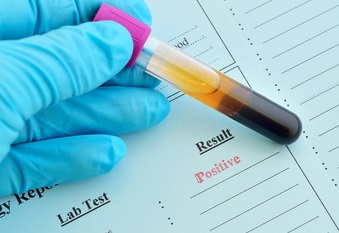
Students are already overwhelmed and easily stressed out by the demands of the clinical setting and having to transfer knowledge to the bedside.
As a clinical educator, I have observed that students will judiciously write down almost everything in the medical record on their prep sheets, afraid they might miss something that could be important as they prepare to plan for care.
Give them three hours or three days, most will spend every minute given to ensure that they are prepared and have identified all care priorities.
Benner (1982) identified this propensity as a classic trait of a novice nurse. Because they lack a sense of salience in the clinical setting, novice nursing students see EVERYTHING as equally relevant.
Therefore they require intentional guidance to determine what clinical data is MOST important to their patient and in general to clinical practice.
In order to strengthen student learning and decrease inherent stress, it is imperative that every nurse educator identify what is NEED to know content in the clinical setting (and classroom too!).
Emphasize NEED to Know Content
Students will encounter an overwhelming amount of clinical data in the medical record. This includes the numerous lab values found in the most commonly ordered lab panels.
In last weeks blog (Do you Know Your BMP’s), I discussed the importance of identifying NEED to know labs that are ALWAYS relevant in a basic metabolic panel.
Today, I will build on this with the most important labs in the commonly ordered lab panels of a complete blood count (CBC) and liver function test (LFT).
Students tend to think that it is only the ABNORMAL labs that are significant and must be noted. But if a lab value is ALWAYS relevant, even if it is normal, it has clinical significance because of its importance and what it represents.
Therefore, emphasize these always relevant lab values so students know where to begin as they dig into each patient chart and face numerous lab values.
CBC Labs that are ALWAYS Relevant
I identified the ALWAYS relevant lab values that provide a foundation for novice nurses to build upon based on my lens of clinical practice. If present in the chart, my students were expected to note these lab values and more importantly to TREND the direction they were going over the last day or two. TRENDING relevant data is also an essential component of clinical reasoning.
Though each lab in a CBC has significance, it is dependent on the primary problem.
To keep it simple for students, from my lens of clinical practice the following labs are on my short list and must always be noted by the nurse:
White Blood Cells (WBC)
- ALWAYS RELEVANT based on its correlation to the presence of inflammation or infection. Will usually be increased if infection present, though it may be decreased in the elderly or peds <3 months.
Neutrophils
- ALWAYS RELEVANT for same reason as WBCs. They are the most common leukocyte and their role as a FIRST RESPONDER to any bacterial infection within several hours is always relevant.
- Though there are five differentials of leukocytes, neutrophils are relevant for most patients. Remember that what bacterial infections are to neutrophils, lymphocytes are to viral infections and will be elevated in that context.
- The more aggressive or systemic the BACTERIAL infection, the higher the percentage of neutrophils and WBCs. Immature neutrophils (bands) greater than 8 are also clinically significant and must be clustered with WBC and neutrophils to determine if sepsis is a clinical concern.
Hemoglobin
- GOLD STANDARD to determine anemia or acute/chronic blood loss.
Platelet count
- Relevant whenever there is a concern for anemia or blood loss or a patient on heparin. If platelets are low, it will obviously be significant and must be noted. Any patient on heparin must TREND this closely to determine complication of heparin induced thrombocytopenia (HIT)
LFT Labs that are ALWAYS Relevant
Relevance in this panel will depend on the primary problem and chief complaint, but if patient has a history of any liver problem/disease, the following are ALWAYS relevant:
Albumin
- Large colloid plasma protein made by the liver. Because it is comprised of protein, it will be decreased in malnutrition. Therefore, it can be a contributing factor to ascites or edema.
Total Bilirubin
- Keep it simple and have students focus on total bili vs direct/indirect for most patients.
- Total of both direct/indirect bilirubin. Bilirubin is metabolized by the liver and broken down by-product of heme protein in RBCs. Relevant in any liver disease.
ALT
- Relevant with any primary liver disease. Enzyme found in liver. Is released into circulation when liver cells are damaged. Has a higher specificity to liver than AST.
AST
- Relevant with any primary liver disease. Enzyme found in liver. Is released into circulation when liver cells are damaged.
Prepare Your Students for Practice!
Do you prepare your students for your clinical rotation by identifying the most important lab values before the first clinical?
I would encourage every clinical nurse educator to identify the top 5 to 10 laboratory values in that specific setting or clinical rotation, and then have students use their lab manuals to identify the norms, clinical red flag values, and physiology, as well as essential nursing assessments for the most important labs.
In Closing
Nursing students are highly stressed going into the clinical setting and easily overwhelmed by the sheer amount of data in the medical record.
As a nurse educator, use your lens of clinical practice to help your students know what to focus on and identify RELEVANT clinical data that must always be noted by the nurse in the most commonly ordered lab panels.
This will not only decrease stress, but will strengthen and facilitate student learning and help them to clinically reason by guiding them to see what clinical data is relevant and WHY.
When this needed level of understanding is acquired, the critical thinking as well as clinical reasoning of students will be strengthened which will not only prepare them for the NCLEX®, but more importantly real-world clinical practice!
What do you think?
What lab values are most important in your clinical setting? How do you prepare your students to acquire deep learning of lab values that are most important?
Comment below and let the conversation begin!
New Youtubes on Cardiac Output!
If you or your students are visual learners, be sure to have them check out my series on understanding and applying CO=SVxHR to clinical practice!
References
Benner, P. (1982). From novice to expert. American Journal of Nursing, 82(3), 402–407.
Leeuwen, A. & Poelhuis-Leth, D. J. (2009). Davis’s comprehensive handbook of laboratory and diagnostic tests with nursing implications. (3rd ed.). Philadelphia, PA: F.A. Davis Company.
Keith Rischer – PhD, RN, CEN
As a nurse with over 35 years of experience who remained in practice as an educator, I’ve witnessed the gap between how nursing is taught and how it is practiced, and I decided to do something about it! Read more…
The Ultimate Solution to Develop Clinical Judgment Skills
KeithRN’s Think Like a Nurse Membership
Access exclusive active learning resources for faculty and students, including KeithRN Case Studies, making it your go-to resource.



